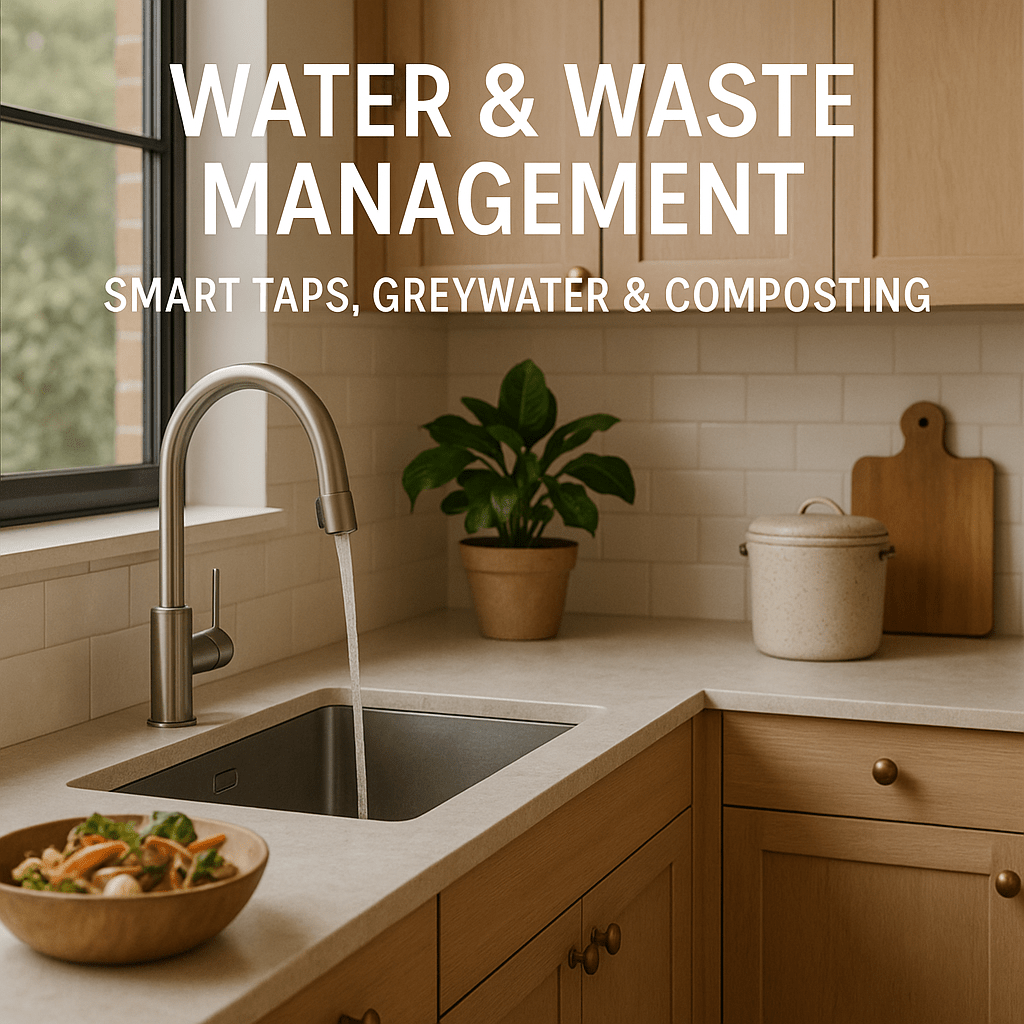
Water & Waste Management: Smart Taps, Greywater & Composting
Share
Modern kitchen design isn’t just about style — it’s about smarter use of resources. Water and waste management are often overlooked areas where eco-conscious improvements can make a huge difference. From smart taps to integrated composting, these practical upgrades can transform your kitchen’s sustainability credentials.
Water-Saving & Smart Taps
Hot taps like those in our Quooker tap range offer more than just convenience. They help save energy by eliminating overfilled kettles and boiling only what you need. Motion-activated and aerated taps can also dramatically reduce water usage without compromising performance.
Greywater Recycling
Greywater refers to gently used water from sinks or washing — and with the right system, it can be safely reused for non-potable applications like flushing toilets or watering the garden. While still rare in UK kitchens, this is a growing area of sustainable design in eco-focused homes and off-grid living.
Built-In Composting & Waste Sorting
Composting is one of the simplest and most effective ways to reduce food waste. Consider integrating a pull-out compost bin with a sealed lid and odour filter. Pair it with a three-way waste-sorting drawer that separates recyclables, general waste, and compostables. Our sink bases offer ample space for this type of integration.
Design for Convenience
For water and waste systems to work, they need to be intuitive. That means placing compost bins near food prep zones, locating waste drawers beside the sink, and ensuring taps are easy to clean and child-safe. A well-designed kitchen reduces effort while encouraging sustainable habits every day.
Our Eco Commitment
We believe every detail matters — from long-lasting cabinets to efficient tapware. Our kitchens are designed to support low-waste living, and our tree-planting scheme helps offset the carbon cost of every handmade kitchen we create.
Conclusion
Water and waste may not be glamorous, but they’re crucial for creating kitchens that are both sustainable and future-ready. With the right taps, waste systems, and design thinking, your kitchen can become a model of low-impact living — one small action at a time.
Frequently Asked Questions
What’s the most effective way to compost kitchen waste?
Use a sealed, built-in compost bin close to your food prep area, and empty it into a garden compost heap or municipal collection. Avoid meat and dairy unless you’re using a Bokashi or hot compost system.
Do smart taps really save water?
Yes. Smart taps with aerators or motion sensors reduce flow without reducing pressure, and boiling taps like Quooker prevent waste from overfilling kettles.
Can I add greywater systems to an existing kitchen?
In most cases, greywater recycling is easier to plan during a remodel, but some retrofit systems exist. Always consult a plumber familiar with greywater setups and local regulations.
